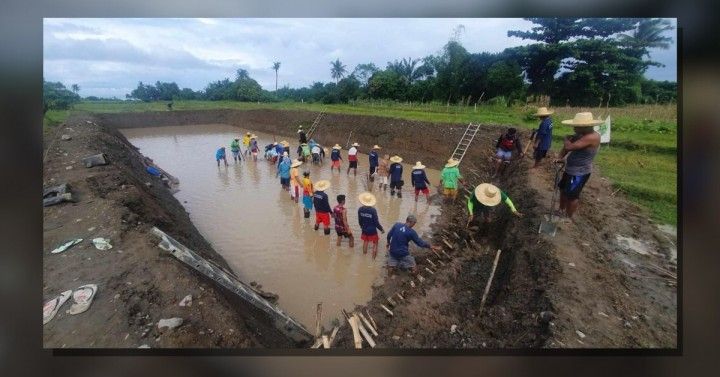As the spectre of the El Niño phenomenon looms large over Western Visayas, the Department of Social Welfare and Development (DSWD) has stepped up its efforts to bolster the resilience of vulnerable communities. Through the Project Local Adaptation to Water Access (LAWA) and Breaking Insufficiency through Nutritious Harvest for the Impoverished (BINHI), funded with PHP 92.32 million, DSWD is poised to make a tangible difference in the lives of those affected by the adverse impacts of climate change.
In collaboration with the World Food Program (WFP) and the Department of Agriculture, DSWD is spearheading initiatives aimed at mitigating the repercussions of El Niño on water and food security. Claud Jan S. Marquez, head of DSWD's disaster response information and management section, underscored the urgency of these interventions during a recent press briefing. With a focus on 17 municipalities grappling with the brunt of El Niño's effects, DSWD's initiatives hold the promise of relief and resilience for vulnerable populations.
The projects, structured in two phases, prioritize the empowerment of poor farmers, fisherfolk, Indigenous Peoples, and climate- and disaster-vulnerable families. The first phase, centered on water sufficiency activities under LAWA, encompasses critical measures such as the construction of small farmers' reservoirs, repair of water harvesting facilities, and diversification of water supplies. By bolstering water security, these initiatives lay the groundwork for resilience against future climatic uncertainties.
Meanwhile, the second phase, focusing on food security through BINHI, embraces a multifaceted approach to agricultural sustainability. From communal vegetable and urban gardening to diversified integrated farming, these activities aim to enhance local food production and promote dietary diversity. By fostering the cultivation of disaster-resilient crops and fruit-bearing trees, BINHI holds the potential to fortify food systems against the vagaries of El Niño-induced disruptions.
The gravity of the ongoing phenomenon is not lost on DSWD, as evidenced by the swift response to reports of affected communities. From Dumarao in Capiz to Barotac Viejo in Iloilo, the impact of El Niño has reverberated across municipalities, leaving farmers grappling with its aftermath. Through the provision of family food packs and coordinated assistance, DSWD endeavors to alleviate the hardships faced by affected families, ensuring that no one is left behind in their time of need.
However, amidst these commendable efforts, challenges persist, particularly in accurately assessing the extent of the affected population. The discrepancy between official reports and ground realities underscores the complexity of disaster response and the need for nuanced approaches to address the diverse needs of affected communities.
As DSWD forges ahead with its risk resiliency program, it is imperative to adopt a holistic and community-centric approach. By fostering collaboration with local stakeholders and leveraging innovative solutions, DSWD can navigate the complexities of disaster response effectively. Ultimately, the success of these initiatives hinges on the collective resolve to empower communities and build a more resilient future for all.
#WeTakeAStand #OpinYon #DSWD #ElNiño
